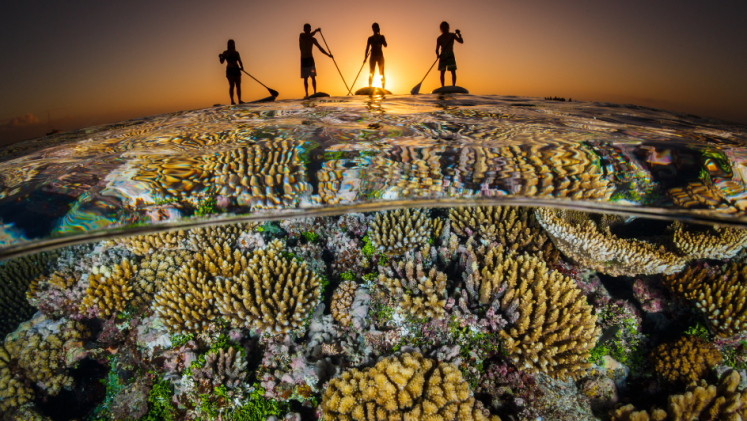Coral reefs are some of the most vibrant and diverse ecosystems on Earth, but they are under serious threat from land-based pollution, overfishing, rising ocean temperatures and ocean acidification. This last process, driven by the absorption of rising CO2 levels, lowers the pH of ocean waters. As a result, corals struggle to build and maintain their skeletons, which leads to weaker reefs that are more susceptible to damage. Currently, we are losing our corals at an unprecedented level around the globe. Here are five reasons why the extinction of these invaluable species should be prevented at all costs.
Marine species depend on coral reefs for their survival
Up to a third a third of known marine species spend a part of their lifecycle in coral reefs. The impacts of human activities pose a significant threat to coral reef biodiversity. For instance, as acidification hampers coral growth and structural integrity, the diverse marine life that depends on these complex habitats is at risk, potentially leading to a loss of species, changing or disrupting the ways reefs function.
Economic losses loom as coral reefs decline
Corals help provide livelihoods, and nearly a billion people depend on corals for their income. As reefs deteriorate, industries like tourism and fisheries that rely on healthy reefs could suffer significant financial losses, leading to job losses and reduced income for millions of people in coastal communities. Estimates vary, but the value of ecosystem services provided by coral reefs could run into the trillions of dollars.
Corals protect coastlines and those living in coastal areas
Reefs break waves and reduce current velocities and as such greatly contribute to reducing risk from coastal hazards like storms. Approximately 200 million people are estimated to depend on coral reefs for protection from storm surges and waves.
Coral reefs support global food security
Because coral reefs provide essential habitats and breeding grounds for many fish species, they are crucial to both local and global food supplies. It is estimated that as many as 1 billion people depend on coral reefs for food. When reefs are damaged, fish populations decline, altering food webs and leading to reduced catches, threatening the food security of those who rely on seafood as a primary protein source.
Corals are essential for cleaning our oceans
Protecting coral reefs is crucial not only for their own survival but also for maintaining the health and stability of oceans worldwide. Corals help to clean our oceans by filtering particles and potentially harmful matter in the water, which in turn supports clearer waters and healthier marine environments. Without healthy reefs, the ocean's natural filtration system could be compromised, leading to degraded water quality and harm to marine life.
The UNU-EHS 2021 Interconnected Disaster Risks report covered the issue of coral reef decline. Among the ten disasters it studied was the bleaching of the Great Barrier Reef. The report analyses several concrete examples of disasters and explains how they are interconnected with each other and human actions. It seeks to shed light on the interconnections that might otherwise be missed and describes how we can develop solutions to use these connections to our advantage.





